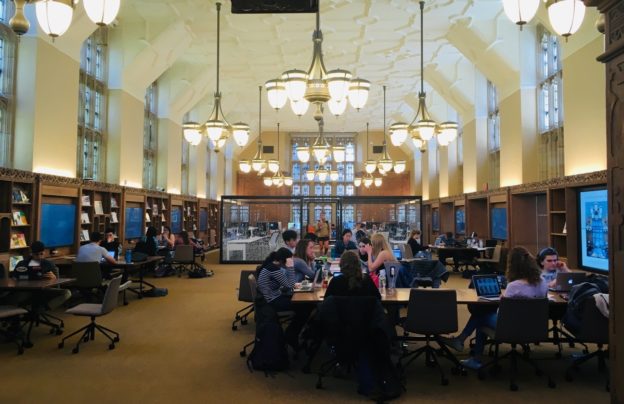I had the opportunity last week and this week to combine a conference on the east coast with archival research work AND visits to two digital humanities (DH) centers.
The conference was an intensive southern African workshop – I received some really helpful feedback and met some amazing Africanists. It is always inspirational to see what other scholars are up to! The presentations and discussion were very diverse and multidisciplinary. While most of the attendees were historians or anthropologists, we also represented from women’s studies, film studies, literature, and law and societies. The majority study South Africa itself; there were a few of us Namibianists, and I think those focused on Angola, Malawi, Zambia, Zimbabwe and other southern African countries felt a bit lonely!
Thus far, I have also conducted research in the Enugu Sreenivasulu (E.S.) Reddy collection at Yale. Reddy led the Special Committee Against Apartheid at the United Nations for many years. His collection is phenomenal! I only consulted 6 out of 83 total boxes, but was astounded by the originality, depth and the informative as well as inspirational nature of the documents.
I love this kind of archival work because you are privy to highly personal, confidential information that you would never have access to at the time of publication. Also, in this case, the collection has a global research due to Reddy’s U.N. position. Thus, there are documents, letters and newspaper clippings from around the world.
After the archival research, I met with representatives from the Yale Digital Humanities lab. I included a few photos below.
Photo 1: shot of DH lab – the lab has been renovated to feature cutting-edge DH technology, yet also maintain the classic architecture and feel of the original library in which it is housed.

Photo 2: one of the DH staff offices

Photo 3: meeting room just off of the main DH lab

Yale has beautiful facilities, and clearly a very active and engaged DH center! Some of my take-aways are the creation of working grounds, DH meet-ups, and the importance of offering Dh grants and of course regular workshops. I was also intrigued by their “User Experience Designer” that they have on staff – this position is responsible for crafting user personas, creating mock-ups, and much more.
Later this week, I will also be visiting an archive in New York with more anti-apartheid resources, and visiting one more DH center. I promise to write more once I complete the tour!
